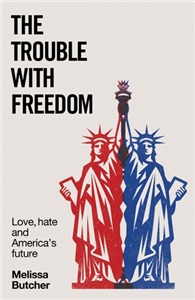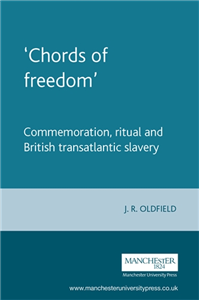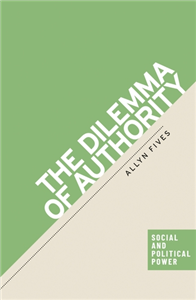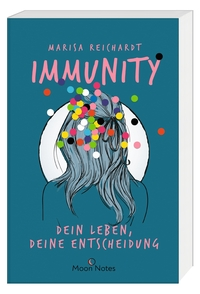Your Search Results
-
Get Fresh Books Publishing
Get Fresh Books Publishing is a non-profit, cooperative press devoted to amplifying diverse voices in poetry and making the publication process accessible to marginalized communities. Our primary objective is to provide opportunities for underrepresented voices by eliminating economic and societal barriers, such as submission fees and contests, which may inhibit marginalized voices from contributing to the literary conversation. As a cooperative press, we encourage manuscript submissions from BIPOC, LGBTQ+, people with disabilities and people living with mental illnesses. By doing so, we explicitly reject any “ism” or phobia which seeks to suppress the voices of those who receive insufficient or inadequate representation in literature. In the four short years of our founding, we have been able to preserve our commitment to diversity and inclusivity by publishing the work of 12 talented and distinct poets, whose poetry cover a wide range of topics from ethnicity, sexuality and religion to immigration, suicide and discrimination. Our press’s cooperative process of integrating the ideas and skills of our poets, editors and publisher have given us the ability to bring fresh and diverse voices into the literary world. With the help of donations, grants and private investments, we have been able to publish each literary work without charging a single submission fee to ensure that poets and writers of all ages, ethnicities, sexual orientations, abilities, and economic statuses would have their voices heard.
View Rights Portal
-
Promoted ContentHumanities & Social SciencesJanuary 2026
The trouble with freedom
Love, hate and America's future
by Melissa Butcher
An illuminating account of how Americans have been divided by the very value that unites them. America today is being torn apart by the struggle over a single concept, deeply rooted in the country's sense of self: freedom. Battered by wave after wave of crises, ordinary people of all political persuasions have come to feel that their freedom is under threat - and with it, nothing less than the soul of the nation. In The trouble with freedom, journalist and researcher Melissa Butcher takes a trip into the ferociously polarised world of American politics, hoping to find out what's going on beneath the surface. Criss-crossing the country, she talks to a wide range of people: Democrat and Republican, gay and straight, urban and rural, immigrants, First Nations, Black, white, the incarcerated. What she discovers is that political conflict is often the outcome of very personal experiences of managing cultural change. Exploring the different ways freedom has been used to define what it means to be American, Butcher encounters anger and distrust, but also untapped possibilities for empathy and care.
-
Promoted ContentHumanities & Social SciencesMarch 2007
‘Chords of freedom’
Commemoration, ritual and British transatlantic slavery
by J. R. Oldfield
How should we as Britons remember transatlantic slavery? How has slavery been remembered in the past? 'Chords of freedom' sets out to answer these questions and, in doing so, traces the way in which British transatlantic slavery has been absorbed into the nation's collective memory. By combining two current historiographical preoccupations - the construction of public memory and British transatlantic slavery - this fascinating book focuses on the way in which the British traditionally have been taught to view transatlantic slavery through the moral triumph of abolition. The author traces the construction of this national history through a number of case studies, including visual images, literary memorials (the competing accounts of the anti-slavery movement produced by Thomas Clarkson and Robert and Samuel Wilberforce), monument-memorials, galleries and museums, and commemorative rituals from the nineteenth century to the present day. A separate chapter also considers how Britain's example in abolishing first the slave trade (1807) and then colonial slavery (1833-34) impacted on the rituals of the American anti-slavery movement, and served as a convenient symbol of the potential of freedom in the British West Indies. 'Chords of freedom' offers valuable new insights into the way in which a 'culture of abolition' took root in Britain, and how our views of transatlantic slavery and figures like William Wilberforce have been revised and amended to reflect the changing demands of a series of 'present days'. Its cross-disciplinary approach will appeal to a broad spectrum of specialists, as well as to undergraduates and postgraduates. ;
-
 Trusted Partner
Trusted Partner
-
 Trusted Partner
Humanities & Social SciencesNovember 2022
Trusted Partner
Humanities & Social SciencesNovember 2022Freedom of speech, 1500–1850
by Robert Ingram, Jason Peacey, Alex W. Barber, Alastair Bellany, Peter Lake
-
 Trusted Partner
Humanities & Social SciencesMarch 2026
Trusted Partner
Humanities & Social SciencesMarch 2026The dilemma of Authority
by Allyn Fives
The moral problem of authority is the challenge of reconciling legitimate authority (the right to rule) with the demands of freedom and rationality. In this book, I argue that authority can have legitimacy, but when it does it generates a moral dilemma, where the obligation to obey comes at some cost to freedom and reason. Hence, not only do I depart from the views of those who insist that authority can never have legitimacy, but also those who maintain that insofar as authority is legitimate it simply satisfies the demands of freedom or rationality. My focus here will be on both what it is that justifies authority (in particular focusing on membership, and the goods of membership) as well what type of reason an authoritative directive is, how it can come into conflict with others reasons, and how those conflicts are resolved.
-
 Trusted Partner
Trusted Partner
-
 Trusted Partner
October 2024
Trusted Partner
October 2024Renunciation and Freedom
Survivial in the future
by Jean-Pierre Wils
The situation in our society is precarious. The ecological shocks are omnipresent. The mere continuation of our lifestyles fixated on expansion and self-development has long since reached its limits. As if intoxicated by ourselves, we consume our world voraciously and without restraint. We need moderation and frugality that lead us out of the ecological and social dead ends and hold both the individual and Politics to account. We are by no means powerless and are perfectly capable of leading a life that offers prospects for a humane future. However, our idea of freedom needs urgent correction. For this endeavour to succeed, we need the courage to face reality and the willingness, in a spirit of solidarity, to say goodbye to a false life and join the alliance of renunciation and freedom. Then we will be free – differently and better.
-
 Trusted Partner
Humanities & Social Sciences
Trusted Partner
Humanities & Social SciencesNaguib Mahfouz Annuals: About Youth and Freedom
by Naguib Mahfouz
Religion is taught in schools as if a branch of science consisting of some Koranic verses, prophetic tradition (Hadith), creed, worships, and biography! Pupils usually study such items by heart, then they go to exam and forget all. Religion is neither a branch of science nor a branch of material knowledge. Religion is a spiritual education that had to be applied in society. It is felt in the way people behave or conduct. Sometimes we meet a clever pupil but he has bad manners! Another, may get high marks in religion but dismissed out of the school for his ill behaviors and bad manners. I believe that religion must be taught as a spiritual education surrounded by a sphere of sympathy and affection. It is something felt by heart, not studied by heart. Teachers have to adress minds to make pupils convinced. They have to teach them biography of the prophet and also of the orthodox Caliphs. They have to select Koran verses according to “the age and the need”. For example Koranic verses dealing with” prayers”, must be studied in an early stage. Then Koranic verses dealing with “fasting”. After that comes verses dealing with moral conducts. In an advanced stage or secondary school, students can study views, ideas, conceptions, visions and philosophy of Islamic eminent characters, as well as eminent characters of other religions. There is a sort of a deflagrated competition between different religions, though they are similar in concepts and attitudes. Also, rivalary between Islam and Western civilization, and communism, is considered. Western civilization has its own entity. It is an integral doctrine having its theories and applications. Western civilization admits human rights and free economy. It could achieve marvellous progress in different fields of life. At the other hand communism also has its own integral doctrine with a private philosophy, economy and ruling systems. It aspires equality between all people, regardless to their colour or race. As a matter of fact it could achieve marevellous progress in different fields of life. Islam stands in between those two different civilizations, trying to get up and rise after a long sleep in the darkness of stagnancy and retardation. Lately, Islam did not achieve adequate progress in fields like modern science, technology, and material power. But it didn’t surrender, because it is till standing as a civilization having its own historical dignity and tradition. But now it is working hard to compensate what it did lose and indemnify what has gone, without contradicting its message and entity.
-
 Trusted Partner
May 2023
Trusted Partner
May 2023Das Orakel der Zaubersprüche
48 magische Karten mit Anleitungsbuch
by Peters, Flavia Kate Meiklejohn‑Free, Barbara
Aus dem Englischen von Horst Kappen
-
 Trusted Partner
Humanities & Social SciencesJanuary 2021
Trusted Partner
Humanities & Social SciencesJanuary 2021Freedom of speech, 1500–1850
by Robert Ingram, Jason Peacey, Alex W. Barber
This collection brings together historians, political theorists and literary scholars to provide historical perspectives on the modern debate over freedom of speech, particularly the question of whether limitations might be necessary given religious pluralism and concerns about hate speech. It integrates religion into the history of free speech and rethinks what is sometimes regarded as a coherent tradition of more or less absolutist justifications for free expression. Contributors examine the aims and effectiveness of government policies, the sometimes contingent ways in which freedom of speech became a reality and a wide range of canonical and non-canonical texts in which contemporaries outlined their ideas and ideals. Overall, the book argues that while the period from 1500 to 1850 witnessed considerable change in terms of both ideas and practices, these were more or less distinct from those that characterise modern debates.
-
 Trusted Partner
Humanities & Social SciencesNovember 2023
Trusted Partner
Humanities & Social SciencesNovember 2023Critical theory and human rights
From compassion to coercion
by David McGrogan
This book describes how human rights have given rise to a vision of benevolent governance that, if fully realised, would be antithetical to individual freedom. It describes human rights' evolution into a grand but nebulous project, rooted in compassion, with the overarching aim of improving universal welfare by defining the conditions of human well-being and imposing obligations on the state and other actors to realise them. This gives rise to a form of managerialism, preoccupied with measuring and improving the 'human rights performance' of the state, businesses and so on. The ultimate result is the 'governmentalisation' of a pastoral form of global human rights governance, in which power is exercised for the general good, moulded by a complex regulatory sphere which shapes the field of action for the individual at every turn. This, unsurprisingly, does not appeal to rights-holders themselves.
-
 Trusted Partner
Trusted Partner
-
 Trusted Partner
Trusted Partner
-
 Trusted Partner
Science & MathematicsFebruary 2020
Trusted Partner
Science & MathematicsFebruary 2020The freedom of scientific research
by Simona Giordano, John Harris, Lucio Piccirillo, Rebecca Bennett
-
 Trusted Partner
Humanities & Social SciencesAugust 2021
Trusted Partner
Humanities & Social SciencesAugust 2021Counter-terror by proxy
The Spanish State's illicit war with ETA
by Emmanuel Pierre Guittet
Between 1983 and 1987, mercenaries adopting the pseudonym GAL (Grupos Antiterroristas de Liberación, Antiterrorist Liberation Group) paid by the Spanish treasury and relying upon national intelligence support were at war with the Basque militant group ETA (Euskadi (e)Ta Askatasuna, Basque Country and Freedom). Over four years, their campaign of extrajudicial assassinations spanned the French-Spanish border. Nearly thirty people were killed in a campaign comprised of torture, kidnapping, bombing and the assassination of suspected ETA activists and Basque refugees. This establishment of unofficial counterterrorist squads by a Spanish Government was a blatant detour from legality. It was also a rare case in Europe where no less than fourteen high-ranking Spanish police officers and senior government officials, including the Minister of Interior himself, were eventually arrested and condemned for counter-terrorism wrongdoings and illiberal practices. Thirty years later, this campaign of intimidation, coercion and targeted killings continues to grip Spain. The GAL affair was not only a serious example of a major departure from accepted liberal democratic constitutional principles of law and order, but also a brutal campaign that postponed by decades the possibility of a political solution for the Basque conflict. Counter-terror by proxy uncovers why and how a democratic government in a liberal society turned to a 'dirty war' and went down the route of illegal and extrajudicial killing actions. It offers a fuller examination of the long-term implications of the use of unorthodox counter-terrorist strategies in a liberal democracy.
-
 Trusted Partner
2021
Trusted Partner
2021Our Democracy in Danger
Hatred and attacks against volunteers,journalists and politicians
by Sabine Leutheusser-Schnarrenberger,Gunna Wendt
We experience in our online world as well as in our ‘real lives’ an increase in slander and abuse, intimidation, hatred and even physical violence against individuals who are committed to our society. If such attacks discourage people from getting involved, this endangers our democracy that depends on participation. Lawyer Sabine Leutheusser-Schnarrenberger and the writer Gunna Wendt interviewed ten committed volunteers about the causes, circumstances and consequences of hatred and violence. These visceral portraits provide a telling insight into the dangers, while showing that we can and must counter the degradation of political rhetoric with composure, respect and tolerance – and with effective measures to protect those at risk.
-
 Trusted Partner
October 2022
Trusted Partner
October 2022Ernst Haeckel
Zoologist, artist, philosopher and freethinker
by Rainer Willmann
Ernst Haeckel (1834–1919) is one of the most famous and influential researchers of all times. This brilliant biography by Rainer Willmann recounts Haeckel's fascinating life for science and his fight for freedom of thought. Haeckel is a vehement advocate of Darwinian doctrine and develops it further, which is why he is fiercely attacked not only by the church but also by his fellow scientists. Among other things, we owe to Haeckel the freedom of research and teaching that we take so much for granted. That he was also a talented artist is proven by his drawings of marine organisms ... The gripping and highly interesting life story of an extraordinary freethinker and scientist.
-
 Trusted Partner
September 2023
Trusted Partner
September 2023Sangua-Clan 1. Blood Rebel
by Darcy Crimson, Moon Notes
Mit schönem Farbschnitt in der Erstauflage – Lieferung je nach Verfügbarkeit Never kiss a Vampire! Die 20-jährige Cara ist ein Freigeist. Mit ihren FreundInnen stützt sie sich regelmäßig in das Nachtleben Neapels. Auf einer illegalen Party in den Katakomben von Neapel lernt sie die geheimnisvolle Kisa kennen. Ein gemeinsamer Tanz endet mit einem intensiven Kuss. Zu spät merkt Cara, dass Kira eine Vampirin ist. Sie beißt zu und trinkt von Caras Blut. Cara verwandelt sich in eine Vampirin und muss ihr geliebtes Leben hinter sich lassen. Sie schwört Rache und lässt sich in den Vampirclan einschleusen, um ihn zu zerstören. Doch leider ist da diese verdammte Anziehungskraft, die sie gegenüber Kisa seit dem gemeinsamen Kuss verspürt… Hat ihre Liebe eine Zukunft? Blood Rebel: Sexy und queer! Ein fesselnder Vampirroman ab 16 Jahren in der faszinierenden Unterwelt Neapels. Lesbian New Adult Romantasy: spannend und sexy. Verflucht angesagt: mit dem beliebten Trope Enemies to Lovers. Atemberaubend erzählt: ein Pageturner für Fans von Fantasy-Schmökern und LGBTQIA+-Büchern.
-
 Trusted Partner
November 2021
Trusted Partner
November 2021Immunity. Dein Leben, deine Entscheidung
by Marisa Reichardt, Moon Notes, Rita Gravert
"Immunity" von Marisa Reichardt erzählt die Geschichte der 16-jährigen June, die inmitten eines Konflikts zwischen den Überzeugungen ihrer Eltern und ihrem eigenen Bedürfnis nach Gesundheitsschutz steht. Aufgewachsen in einer Familie, die sich strikt gegen Impfungen ausspricht und einen alternativen Lebensstil pflegt, hat June nie eine normale Kindheit erlebt. Ihre Welt gerät ins Wanken, als sie sich mit den Masern infiziert, einer Krankheit, die verheerende Folgen nach sich zieht und das Leben anderer gefährdet. Dieses Ereignis zwingt June, sich den dogmatischen Ansichten ihrer Eltern zu widersetzen und für ihr Recht zu kämpfen, selbst über ihre Gesundheit zu entscheiden. Mit der Entscheidung, die Vormundschaft ihrer Eltern gerichtlich anzufechten, um sich impfen lassen zu können, betritt June einen schwierigen und emotional aufgeladenen Pfad. Der Roman ist nicht nur ein spannender Coming-of-Age-Roman über die erste Liebe und das Erwachsenwerden, sondern auch eine tiefgründige Auseinandersetzung mit Themen wie Selbstbestimmung, familiäre Konflikte und gesellschaftliche Verantwortung. June entwickelt sich zu einer starken Protagonistin, die trotz der Gefahr, ihre familiären Bindungen zu verlieren, mutig für ihre Überzeugungen eintritt. Marisa Reichardt gelingt es, eine fesselnde Geschichte zu erzählen, die wichtige Fragen aufwirft und zum Nachdenken anregt. Spannendes Jugendbuch, das aktuelle gesellschaftliche Debatten rund um Impfungen und Selbstbestimmung aufgreift. Starke, inspirierende Protagonistin, die gegen die Überzeugungen ihrer Familie ankämpft, um für ihr Recht auf Gesundheitsschutz einzustehen. Behandelt die wichtige Thematik der Selbstbestimmung und körperlichen Autonomie in einer Weise, die Jugendliche anspricht und zum Nachdenken anregt. Eingebettet in eine Coming-of-Age-Geschichte, die neben dem ernsten Hauptthema auch Raum für erste Liebe und die Entwicklung persönlicher Überzeugungen bietet. Bietet tiefe Einblicke in die Konflikte zwischen persönlichen Freiheiten und gesellschaftlicher Verantwortung, was zur aktuellen globalen Gesundheitslage besonders relevant ist. Fördert durch die einfühlsame und realitätsnahe Darstellung der Charaktere und Situationen Verständnis und Empathie für Menschen mit unterschiedlichen Ansichten. Eine Geschichte über Mut, Veränderung und das Aufbrechen alter Muster, die Leserinnen und Leser jeden Alters berührt und inspiriert.
-
 Trusted Partner
Humanities & Social SciencesOctober 2024
Trusted Partner
Humanities & Social SciencesOctober 2024Brexit and citizens’ rights
History, policy and experience
by Djordje Sredanovic, Bridget Byrne
The book offers interdisciplinary analyses of the impact of Brexit on the rights of EU27 citizens in the UK, Britons in the UK and the EU, and third-country nationals. It combines a historical examination of citizenship and migration between the UK, Europe and the Commonwealth with the analysis of policies and of the experiences of the different groups impacted by Brexit. The book discusses Brexit within the larger history and dynamics of UK and EU citizenship and migration. The individual chapters look at how Brexit is transforming the citizenship rights of different groups, including issues of loss of citizenship and experiences of naturalisation. They further examine the fears of the groups impacted, and larger issues of belonging, marginalisation, political orientations and mobilisations that cross legal status, nationality, ethnicity, race and class.



























